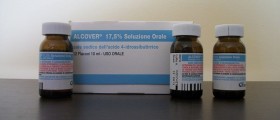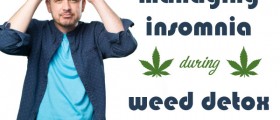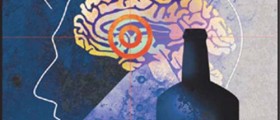
Symptoms of alcohol withdrawal
Symptoms of alcohol withdrawal may vary from mild symptoms to extremely severe and even life threatening. In milder cases patients may experience anxiety and sleep disturbances, while in the most severe cases, they may experience delirium. Delirium is a severe symptom that typically involves cognitive deficits, changes in arousal, perceptual insufficiency, altered sleeping cycle, and psychotic features. Symptoms typically occur early in the morning, on waking, as the blood alcohol concentration falls during the sleep. Patient may experience agitation, irritability, migraines, nausea and vomiting, sweating, restlessness, diarrhea, derealization, gastrointestinal upset, tremors, weakness, hypertension, palpitation and seizures. Seizures are the most severe symptom as they may affect even the cardiac muscle, leading to cardiac arrest and even death. Another severe symptom is known as delirium tremens, which is a Latin word for shaking frenzy. Delirium tremens affects people with a history of alcoholism and often manifests in hallucinations and other physical symptoms. This symptom can also result in seizures, and death if not properly managed.
Treatment for alcohol withdrawal symptoms
Alcohol withdrawal symptoms are successfully managed by benzodiazepines, which can also prevent the seizures. However, these medicines should only be used short term in alcoholics who aren't already dependent on benzodiazepine. One of the side effects of these medicines is that they increase cravings for alcohol in problem alcohol consumers.
Some patients may benefit from antipsychotics as they are able to control agitation or psychosis and lower the seizure threshold. However, these medicines can also worsen other withdrawal effects. They should be used only with extreme caution.
Vitamins and minerals may also help to pass this extreme period. Magnesium is very good to prevent cardiac arrhythmias while thiamine and folic acid also play an important role.
















Your thoughts on this
Loading...